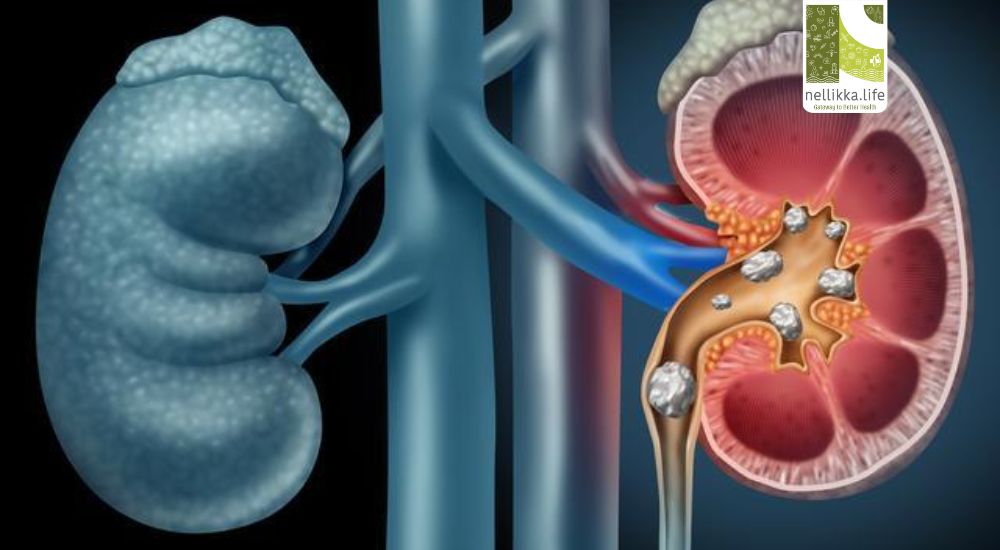Kidney Stones: Causes, Symptoms, Diagnosis, Treatment & Prevention

Kidney stones are a common but often misunderstood urological condition that can cause severe pain and discomfort. Affecting millions worldwide, these hard mineral deposits form in the kidneys and can travel through the urinary tract. While they can affect anyone, certain individuals are more prone due to genetic, dietary, and lifestyle factors.
This blog provides a comprehensive overview of kidney stones—what they are, why they form, how they’re diagnosed and treated, and, most importantly, how they can be prevented.
What Are Kidney Stones
Kidney stones, or renal calculi, are hard deposits made of minerals and salts that form inside your kidneys. These stones can vary in size—from as small as a grain of sand to as large as a golf ball—and can stay in the kidney or travel through the urinary tract.
Causes of Kidney Stones
Kidney stones form when your urine contains more crystal-forming substances—like calcium, oxalate, and uric acid—than the fluid in your urine can dilute. Causes include:
- Dehydration: The most common cause. Low urine volume leads to stone-forming minerals concentrating.
- Diet: High protein, sodium, and sugar intake increase the risk.
- Obesity: Linked to metabolic changes that promote stone formation.
- Medical Conditions: Hyperparathyroidism, urinary tract infections, gout, and cystinuria.
- Certain Medications: Such as diuretics, calcium-based antacids, and anti-seizure drugs.
Symptoms of Kidney Stones
You may not notice a stone until it moves within your kidney or passes into your ureter (the tube connecting your kidney and bladder). Symptoms include:
- Severe pain in the side and back, below the ribs
- Pain radiating to the lower abdomen and groin
- Pain that comes in waves and fluctuates in intensity
- Blood in urine (hematuria)
- Cloudy or foul-smelling urine
- Nausea and vomiting
- Persistent urge to urinate
- Fever and chills (if an infection is present)
Exams and Tests
To diagnose kidney stones, your doctor may recommend:
- Imaging Tests:
- CT Scan (non-contrast helical CT) – the most accurate method
- Ultrasound – often used in pregnancy or children
- X-ray of the abdomen – less sensitive, but may detect large stones
- Urine Tests:
- 24-hour urine collection to measure mineral and acid levels
- Blood Tests:
- Check for calcium, uric acid levels, and kidney function
- Stone Analysis:
- If you pass a stone, it can be collected and analyzed to understand its composition (calcium oxalate, uric acid, cystine, etc.)
Treatment Options
A. Small Stones with Minimal Symptoms
- Hydration: Drink 2-3 liters of water daily to help flush the stone
- Pain relievers: NSAIDs like ibuprofen
- Medical therapy: Alpha-blockers like tamsulosin may relax ureter muscles to pass stones more easily
B. Large Stones or Those Causing Complications
- Extracorporeal Shock Wave Lithotripsy (ESWL): Uses sound waves to break the stones into smaller pieces.
- Ureteroscopy: A thin tube is passed through the urethra to remove or break the stone.
- Percutaneous Nephrolithotomy: A surgical procedure for large or irregular stones.
- Parathyroid gland surgery: If stones are due to overactive parathyroid glands.
Prevention of Kidney Stone
Preventing kidney stones involves dietary changes, lifestyle management, and sometimes medications.
General Tips:
- Drink plenty of water: Aim for at least 2–2.5 liters of urine daily.
- Limit sodium: Reduces calcium in the urine.
- Reduce oxalate-rich foods: Spinach, beets, nuts, and chocolate.
- Eat calcium-rich foods: Helps bind oxalate in the gut (but avoid supplements unless prescribed).
- Limit animal protein: Reduces uric acid stone risk.
- Maintain a healthy weight
Medications for Prevention:
Depending on stone type:
- Thiazide diuretics for calcium stones
- Allopurinol for uric acid stones
- Potassium citrate for citrate deficiency
Alternative Names for Kidney Stones
- Renal calculi
- Nephrolithiasis
- Urolithiasis
- Urinary tract stones
- Renal stones
References and Further Reading:
While kidney stones are painful and often recurring, they are highly manageable and preventable with the right approach. Early detection, timely treatment, and consistent lifestyle changes can make a significant difference. If you suspect symptoms, don’t delay—consult a urologist and take preventive action.





